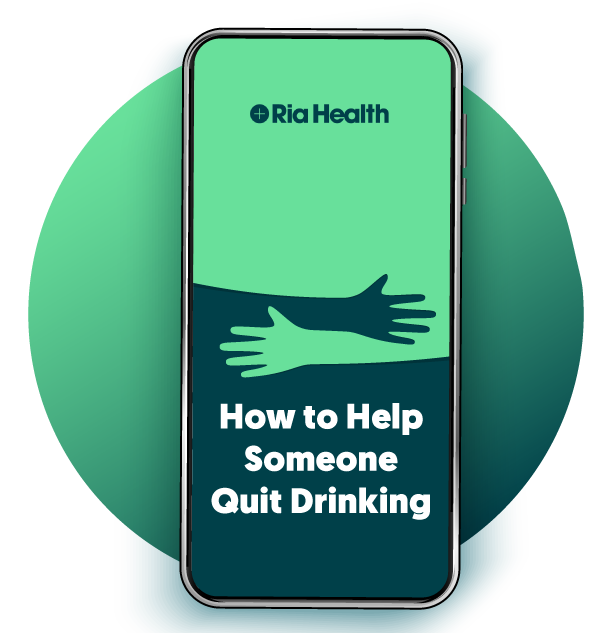What Does “Enabling” Really Mean—and How Can You Avoid Doing It?
Sometimes, when we try to help friends or family members struggling with alcohol addiction, we can unintentionally make it easier for them to continue the disease’s progression. This is often known as “enabling.”
“Enabling” can include many types of behavior. But what all forms of enabling have in common is that they allow a person to continue unhealthy drinking patterns without facing the full consequences of their actions. It means that, contrary to our best intentions, we are actually giving someone less motivation to quit.
The term “enabling” isn’t always helpful. In some cases, it can lead to unproductive guilt for family members. There are times when the line between helping and enabling is blurry, or when there are few other options in the reality of daily life. Calling someone an “enabler” can add to an already heavy psychological burden, implying someone is partially responsible for a loved one’s addiction. That said, it is still crucial to identify enabling behaviors, and avoid them.
What Do People Mean When They Talk About “Enabling”?

According to Psychology Today, enabling is: “accepting the behavior of another person without judgment, then allowing (them) to engage in that behavior—good, bad, or indifferent. A less cumbersome way of thinking about this is ‘holding space’. With accepting and allowing comes a certain degree of passive support—or even sanctioning—of the behavior.”
While this may be perfectly fine in the context of healthier behaviors, this type of acceptance can be harmful when it comes to excessive drinking.
When someone we care about is in pain, we naturally want to help in any way we can. But we need to ask ourselves “Whom does this serve?” Are we truly helping, or are we actually stripping the person of their autonomy, power, and ability to heal? The fact is, to effectively help another, we need to acknowledge and set our own boundaries, as difficult as it may seem.
So, what is enabling an alcoholic?
Perhaps when you see your loved one neglecting their responsibilities due to their drinking problem, you decide to buy their groceries, clean their apartment, or put gas in their car. Or maybe you call them every morning to make sure they get up for work on time.
Essentially, enabling an alcoholic means you start doing things for them that they should be able to do for themselves, as a functioning adult. However, by enabling them in this way, they never experience the consequences of their drinking (losing a job, getting evicted, etc.). Often, someone with alcohol use disorder may not want to change or reach out for help until life gets extremely difficult, long referred to as “hitting rock bottom.”

Download Our Free Guide
Download our guide on How to Help Someone Quit Drinking. Learn more about alcohol use disorder, communicating with a loved one, and the resources available to help.
What Is the Difference Between Helping and Enabling?
Knowing the difference between helping and enabling can be challenging. As Dr. Nicole Kosanke states, our culture at large can contribute to this confusion, doing a disservice to families struggling to help a loved one. They receive mixed messages about what they should do … “have an intervention,” “send them to rehab,” or “cut them off.” And family members can feel so demoralized, and even flawed, by being told they are enabling or codependent.
But that being said, enabling does exist, and it is crucial for family and friends to understand the distinction between enabling and helping. Dr. Kosanke points out that “enabling increases the likelihood of behavior.” So, when your actions make it easier for someone to continue drinking excessively, you are enabling as opposed to helping.
In a nutshell, helping means doing something for someone they genuinely cannot do for themselves, while enabling means doing things for them that they could do perfectly well if they were drinking less. Enabling your loved one prevents them from feeling the full consequences of their illness, and can make the problem seem less severe to them. It can also leave you feeling drained and exhausted from taking on excessive burden and responsibility.
Examples of enabling behavior include:
- Handling someone’s responsibilities when they are not functioning, due to drinking or a hangover
- Drinking with your loved one
- Lying or making excuses to cover up someone’s drinking
- Not following through with boundaries or consequences that you establish
- Validating their excuses or rationalizations (e.g. “That’s true, you did have a very stressful week.”)
- Prioritizing your loved one’s needs over your own
How to Stop Enabling Behavior

You may be desperate to help your loved one, but unsure how to go about it. So, how do you stop enabling an alcoholic?
The first step is to take an honest look at your relationship and the ways you may have been enabling their addictive behavior. If you think your actions are allowing your loved one to continue their destructive drinking patterns, there are practical steps you can take to make changes, and get them the help they need to start living a healthy and productive life.
While eliminating enabling behaviors may initially cause some conflict and even guilt, breaking the enabling cycle can ultimately lead to healing. Here are some effective ways to stop enabling an alcoholic:
- Create healthy boundaries and clear consequences for unacceptable behavior
- Avoid cleaning up messes your loved one makes while intoxicated
- Do not allow your loved one to put you in harmful situations
- Follow through with plans you’ve made with them—even if they refuse to participate
- Model positive behaviors and strategies such as “drink refusal techniques”
- Practice self-care, and don’t allow your loved one’s needs to supersede your own
- Encourage your loved one to get help while recognizing you cannot force them to change
It’s easy to slip into enabling behaviors because you want to protect and care for someone. It is difficult to stand by and watch their life fall into ruins. But it’s important to remind yourself that these same “rescuing” behaviors prevent your loved one from experiencing the painful consequences of their actions. As long as there are no difficult consequences, there will be no clear reason to change.
When you stop enabling your loved one’s drinking, they are more likely to feel its harmful effects and choose to seek the help they need.
If your loved one is ready to make a change, there are newer, more convenient ways of seeking help. Get in touch with Ria Health to learn how we can support them in their recovery, 100 percent online.
Will insurance cover treatment? Verify Coverage
Have Questions? Call (800) 504-5360



